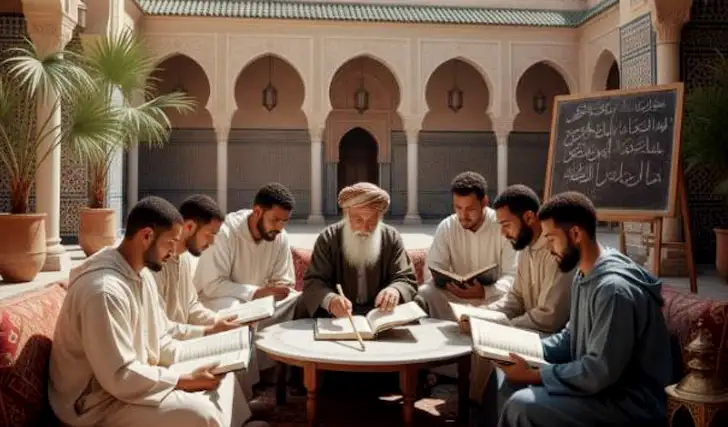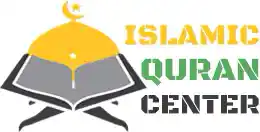10 Powerful Reasons – Why “Fusha Arabic” Remains the Heart of the Arabic Language?

Fusha Arabic, often referred to as Modern Standard Arabic (MSA) or Classical Arabic, is the purest and most formal version of the Arabic language. It serves as the linguistic bridge uniting over 25 Arab countries with distinct dialects. Unlike colloquial varieties such as Egyptian, Levantine, or Gulf Arabic, Fusha represents the shared standard used in literature, academia, news broadcasts, and religious texts.
Defining Fusha Arabic
Fusha Arabic can be divided into two main forms:
- Classical Arabic (al-‘Arabiyyah al-Fuṣḥā al-Qadīmah) – The language of the Quran, classical poetry, and historical texts.
- Modern Standard Arabic (MSA) – The contemporary adaptation used in schools, official documents, and media.
Both share the same grammatical foundation but differ in vocabulary and usage. Fusha’s rich morphology and syntax make it one of the most logical and expressive languages globally. Every word has a root, often triliteral, from which dozens of related terms can be derived—creating a deep interconnected web of meaning.
Reasons Why Fusha Arabic Remains the Heart of the Arabic Language
Fusha (Modern Standard Arabic or Classical Arabic) is the formalized, written, and educated register that maintains its undisputed position as the central pillar of the Arab linguistic identity.
1. Fusha Arabic Preserves the Legacy of the Quran
The foremost reason Fusha Arabic remains vital is its sacred connection to the Quran. As the language of revelation, it holds unmatched spiritual significance for Muslims worldwide. Understanding the Quran in its original Fusha form reveals linguistic subtleties and rhetorical beauty that translations often fail to capture.
This sacred bond ensures that Fusha will never fade – its preservation is a matter of faith, scholarship, and identity for over 1.8 billion people globally.
2. It Unites the Arab World Linguistically
Despite the Arab world’s vast geography – from Morocco to Oman – Fusha Arabic serves as the common thread that binds nations, cultures, and dialects.
A Moroccan and an Emirati may speak different dialects, but when they write or watch the news, they use the same Fusha. It’s the linguistic “glue” that transcends local variations and maintains a sense of unity across 25+ countries.
3. Fusha Arabic Upholds Centuries of Literary Excellence
Fusha is the language of classical Arabic poetry, philosophy, and literature. From the pre-Islamic poets like Imru’ al-Qais to modern authors like Naguib Mahfouz, it has been the medium for expressing profound human experiences.
Its rhythm, rich vocabulary, and precise grammar make it ideal for literary beauty and emotional depth. Without Fusha, the Arab literary tradition would lose its elegance and continuity.
4. It Shapes Education Across the Arab World
Every Arab child learns to read and write in Fusha Arabic. Textbooks, exams, and academic journals all rely on it.
In fact, Fusha serves as the academic lingua franca of the Arab world—bridging students, teachers, and researchers across borders.
This educational foundation keeps Fusha alive and relevant in the minds of new generations.
5. Fusha Arabic Represents Cultural Identity and Pride
Fusha is more than grammar and vocabulary – it’s a symbol of cultural pride. Arabs regard it as the purest form of their language, connecting them to their ancestors’ eloquence and wisdom.
Speaking or writing in Fusha often conveys respect, intellect, and heritage. It’s a source of pride that reinforces Arab identity on the global stage.
6. It Provides Precision and Clarity in Expression
One of Fusha’s defining features is its linguistic precision. Each root word carries deep layers of meaning, allowing speakers to express complex ideas succinctly and elegantly.
For example, the root ك-ت-ب (k-t-b) can produce “كتب” (he wrote), “كتاب” (book), “مكتبة” (library), and “كاتب” (writer)—all sharing a conceptual link.
This logical structure gives Fusha unmatched expressiveness and flexibility.
7. Fusha Arabic Enables Pan-Arab Media and Communication
Modern Arabic journalism, broadcasting, and diplomacy rely heavily on Fusha. Channels like Al Jazeera, BBC Arabic, and Al Arabiya all broadcast in this formal register to reach audiences across dialectical lines.
Without Fusha, these networks would need dozens of dialect versions. Instead, one standard language ensures mutual understanding from the Atlantic to the Gulf.
8. It Bridges the Past and the Present
Fusha Arabic is not a relic – it’s a living language constantly evolving with modernity. New words are coined for technology, science, and politics while keeping traditional structures intact.
Institutions like the Academy of the Arabic Language in Cairo continuously update vocabulary for terms like “computer” (حاسوب) or “internet” (إنترنت).
Thus, Fusha bridges ancient heritage with contemporary relevance.
9. It Opens Doors for Non-Native Learners
Globally, interest in learning Fusha Arabic is surging. Students, diplomats, and researchers seek it not only for religious studies but also to access Middle Eastern culture, history, and media.
Fusha’s logical grammar and deep etymology make it intellectually stimulating. Mastering it provides direct access to some of the world’s richest philosophical and literary traditions.
10. Fusha Arabic Strengthens Global Cultural Dialogue
Finally, Fusha serves as a cultural ambassador. Through translations, literature, and media, it helps the world understand Arab civilization’s intellectual depth and artistic sophistication.
By preserving Fusha, Arabs maintain a linguistic channel for global communication—one that represents both tradition and modern expression.
How to Learn Fusha Arabic Effectively
Learning Fusha Arabic requires dedication, but with the right approach, it’s entirely achievable—even for non-native speakers. Here’s a practical, step-by-step roadmap.
1. Start with the Alphabet and Pronunciation
Before diving into vocabulary, master the Arabic script. Pay attention to sounds like خ (kh) and غ (gh) which are unique to Arabic. Practicing these early helps with reading fluency later.
2. Build Core Vocabulary
Begin with essential words related to everyday life—family, greetings, numbers, and time. Tools like Anki (for spaced repetition) or Memrise can make this process more effective.
3. Learn Grammar Systematically
Arabic grammar follows clear, logical rules. Focus on:
- Verb forms (الأوزان) – understanding roots and patterns
- Cases (الإعراب) – nominative, accusative, genitive
- Dual and plural forms – unique to Fusha and essential for accuracy
4. Immerse Yourself Daily
Read Arabic newspapers, listen to podcasts like ArabicPod101, and watch programs on Al Jazeera Arabic or BBC Arabic. Exposure is key to mastering comprehension.
5. Practice Writing and Speaking
Try journaling in Fusha or participating in online Arabic forums. Although it’s more formal than spoken dialects, writing consistently reinforces grammar and vocabulary retention.
Conclusion
Fusha Arabic isn’t just the “heart” of the Arabic language – it’s its lifeblood. From sacred scripture to breaking news, it beats within every layer of Arab life.
Its eloquence, logic, and unifying power make it far more than a linguistic standard; it’s a living testament to history, faith, and creativity. As long as Arabic speakers continue to read, learn, and write, Fusha Arabic will remain the eternal voice of their shared identity.
